Sue Thotz is the Los Angeles Education Program Manager for Common Sense Education. She works with districts to create a foundation of digital citizenship that fits with their vision.
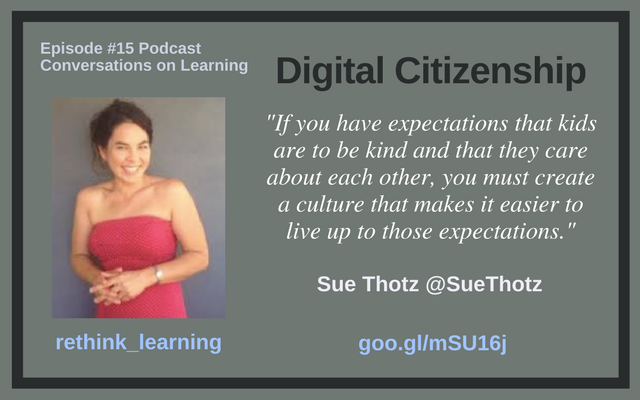
Podcast: Play in new window | Download
I met Sue several years ago at the CUE and ISTE conferences. Her enthusiasm about everything she is involved in is so inspiring. Then when I had a chance to have a conversation with her, I learned so much that I couldn’t wait to share it with you. Below are some excerpts from the podcast:
Can you share a little about yourself, your family, and your background?
I grew up in central Illinois. My mother was an immigrant from Okinawa, Japan, and my father was an English teacher. We lived in a town with about 1,000 people and my mom worked at my school. My mom passed away a couple of years ago. I was thinking about her growing up in Okinawa that was an extremely social environment in an island where everyone in the community takes care of everyone else. Then she moved to a small town in Illinois where she knew no one else like her which must have been a very lonely place to live so far away from family and all of her connections. As a teenager, I observed my mom constantly reaching out to connect to others trying to make community wherever she could. Being an adult now, I’m much more social than I was as a teenager. I see myself more like my mother trying to reach out to make connections with people that I feel in community with.
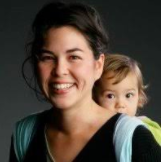 I was very much interested in science so I got my degree in zoology and chemistry and ended up working a long time in a biochemistry lab. Then I decided to do lots of world travel and wacky jobs which eventually led to public health education and education research. Then somehow it brought me on this wild path all the way to Common Sense education. I think it really is kind of how I’ve been able to find community and find people that are like-minded when it comes to the way we see the world and the things that we feel are important and of value to us.
I was very much interested in science so I got my degree in zoology and chemistry and ended up working a long time in a biochemistry lab. Then I decided to do lots of world travel and wacky jobs which eventually led to public health education and education research. Then somehow it brought me on this wild path all the way to Common Sense education. I think it really is kind of how I’ve been able to find community and find people that are like-minded when it comes to the way we see the world and the things that we feel are important and of value to us.
Common Sense Media is a great resource. Can you explain what it offers for schools and parents?
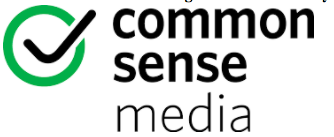 Common Sense Media is a nonprofit organization that started 14 years ago so parents could have information about the kinds of media and technology that their kids were taking part in. It was in response to a call for censorship when a lot of folks were saying certain movies or music were bad for kids that needed to be censored. Our founder and CEO wanted to introduce the idea of sanity, not censorship. It needed to be about helping make good decisions about the type of media kids were involved with. We started rating media books, music, and video games and continue to do that to this day. That was way before cell phones and all the technology that is part of our lives today. We provide a lot of advice and information for parents to help them guide their kids on how to use technology. Then we created K-12 curriculum for kids that centers on the concept of digital citizenship to help them make good decisions, be responsible and ethical, safe and kind, and use technology for positive forces in their lives.
Common Sense Media is a nonprofit organization that started 14 years ago so parents could have information about the kinds of media and technology that their kids were taking part in. It was in response to a call for censorship when a lot of folks were saying certain movies or music were bad for kids that needed to be censored. Our founder and CEO wanted to introduce the idea of sanity, not censorship. It needed to be about helping make good decisions about the type of media kids were involved with. We started rating media books, music, and video games and continue to do that to this day. That was way before cell phones and all the technology that is part of our lives today. We provide a lot of advice and information for parents to help them guide their kids on how to use technology. Then we created K-12 curriculum for kids that centers on the concept of digital citizenship to help them make good decisions, be responsible and ethical, safe and kind, and use technology for positive forces in their lives.
Can you mention what it means to have a digital footprint?
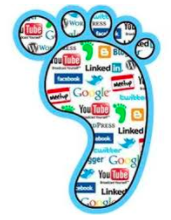 When it comes to exploring kids’ identities and who they are and who they want to be, that is all natural in development and how they want to connect with the world. When you are a kid you tend to take a lot of risks. When we were kids, it was different. We took risks by writing in our diaries or sharing among our own friends and family. Nothing was shared outside of our own groups. Today it is very different. As kids are playing out their identities and making mistakes, we want to encourage them to be curious and take risks to find out who they are while they are growing up. I want my own kids to explore but how do you help them do this exploration in a way that doesn’t have long-term consequences and a negative impact on their future? You don’t want them to misrepresent their own values in a public way.
When it comes to exploring kids’ identities and who they are and who they want to be, that is all natural in development and how they want to connect with the world. When you are a kid you tend to take a lot of risks. When we were kids, it was different. We took risks by writing in our diaries or sharing among our own friends and family. Nothing was shared outside of our own groups. Today it is very different. As kids are playing out their identities and making mistakes, we want to encourage them to be curious and take risks to find out who they are while they are growing up. I want my own kids to explore but how do you help them do this exploration in a way that doesn’t have long-term consequences and a negative impact on their future? You don’t want them to misrepresent their own values in a public way.
So how do we encourage them to be thoughtful about what they share that they can stand by 10 years from now? Common Sense tries to plant the seed to help kids think about things from another perspective, someone else’s point of view, someone who is looking at them from the outside in.
Love this quote from you. “How can we create a culture that makes it easier for our students to make good decisions?” Can you expand on it?
My background is in public health and one of the research projects I was looking into the food availability in Chicago and comparing to different neighborhoods. If I’m telling you to buy and cook healthy food, exercise or do all of these positive things for your family, but you live in a neighborhood where the food I’m telling you to buy is not available or what is available is not healthy. If that’s the environment that you live, how can I expect you to do what I’m asking you to do?
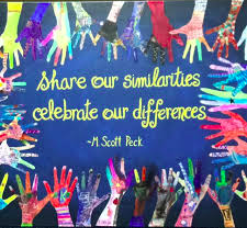 If a kid grows up in a culture in a school that values everyone being harsh to each other or extremely competitive in the wrong kind of way, then how do we expect kids to be good to others when they go online? If you have expectations that kids are to be kind and that they care about each other, you must create a culture that makes it easier to live up to those expectations. You don’t want kids to feel like they are outcasts for being good for standing up for somebody. So how do you as a school make that “intentional value” across to your teachers, kids, and parents, that we use technology in this way to take care of each other?
If a kid grows up in a culture in a school that values everyone being harsh to each other or extremely competitive in the wrong kind of way, then how do we expect kids to be good to others when they go online? If you have expectations that kids are to be kind and that they care about each other, you must create a culture that makes it easier to live up to those expectations. You don’t want kids to feel like they are outcasts for being good for standing up for somebody. So how do you as a school make that “intentional value” across to your teachers, kids, and parents, that we use technology in this way to take care of each other?
Here’s another quote: “Kids aren’t addicted to their phones, they are addicted to their friends.” Let’s talk about this and your message about Hope is not a Strategy.
This quote came from a teenager who wanted to convey that it was not the device she loved so much, but this device was a means for her to talk to her friends who she cares about. She wants to know what’s going on with them and being involved in their lives. It’s all about her friends; it’s not the device.
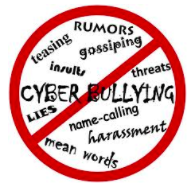 I say Hope is not a Strategy a lot. My boss, Jeff Mao who was main director of technology for the Maine 1:1 laptop program and is now involved with Future Ready. He is the one who emphasized that Hope is not a Strategy with me and said that if we want to convey to administrators or to teachers the importance of proactively going after this idea of intentionally created a culture. We can’t expect teachers to create the culture by themselves. We cannot sit back and just hope that the culture will happen. I equate it with sex education and adolescent health. We can provide guidance, recommendations, and skills to educate our kids in a meaningful way and not just slap a poster on the wall that says “don’t get pregnant.” You just can’t hope that they’ll do what you say or on the poster. We can’t slap a poster on the wall the says “don’t cyberbully anyone” or “think about your digital footprint.” Without the skills, the why, the development of the abilities, and the reasoning behind it, you can’t just hope that things will turn out or expect that poster to be your strategy.
I say Hope is not a Strategy a lot. My boss, Jeff Mao who was main director of technology for the Maine 1:1 laptop program and is now involved with Future Ready. He is the one who emphasized that Hope is not a Strategy with me and said that if we want to convey to administrators or to teachers the importance of proactively going after this idea of intentionally created a culture. We can’t expect teachers to create the culture by themselves. We cannot sit back and just hope that the culture will happen. I equate it with sex education and adolescent health. We can provide guidance, recommendations, and skills to educate our kids in a meaningful way and not just slap a poster on the wall that says “don’t get pregnant.” You just can’t hope that they’ll do what you say or on the poster. We can’t slap a poster on the wall the says “don’t cyberbully anyone” or “think about your digital footprint.” Without the skills, the why, the development of the abilities, and the reasoning behind it, you can’t just hope that things will turn out or expect that poster to be your strategy.
What are ways to protect students’ privacy on social media?
 We give a lot of advice about protecting privacy using social media. I have 2 kids and coming from me as a parent, I want to give you a personal perspective. My daughter is a reader and loves books and fan fiction. She wanted an Instagram account because there were others online who love Harry Potter and other fan fiction that she could connect to. She was only 13 but I felt that this was the reason to be on social media: to connect with others with similar interests to deepen her love of fan fiction. She wants friends, not technology. I owned the Instagram that she posted on and had control while she could navigate the waters of Instagram. It allowed me to see her posts and I could question her on any that were questionable, controversial, or potentially not in line with our values as a family.
We give a lot of advice about protecting privacy using social media. I have 2 kids and coming from me as a parent, I want to give you a personal perspective. My daughter is a reader and loves books and fan fiction. She wanted an Instagram account because there were others online who love Harry Potter and other fan fiction that she could connect to. She was only 13 but I felt that this was the reason to be on social media: to connect with others with similar interests to deepen her love of fan fiction. She wants friends, not technology. I owned the Instagram that she posted on and had control while she could navigate the waters of Instagram. It allowed me to see her posts and I could question her on any that were questionable, controversial, or potentially not in line with our values as a family.
It wasn’t evaluating her but encouraging conversations around how she feels about posting something or taking someone else’s picture and making a meme out of it. It allowed us the opportunity to play with this, think about it, and ask questions before actually going on Instagram on her own. No one can follow her unless she approves them, modeling, setting it to private to maintain privacy, and not joining every app that is out there because it’s free. We also need to find out what type of information they are harvesting off of us. I know that this is not what most kids think about, but I want them to know that is free for a reason. There are companies that are using our data and pulling information about us and money being made on that. What does a citizen in today’s society need to do about that? I found that using Instagram and then being able to answer questions when they arise, is about teaching at the moment and making the experience authentic.
There’s more to the podcast. Sue is so awesome. I loved the conversation with her and realized that the conversation is what makes it cool. Enjoy!
****

Sue Thotz is the Los Angeles Education Program Manager for Common Sense Education. Since 2011, Sue has been providing professional development and partnering with educators and parents to help them create a culture where students use technology in a meaningful, thoughtful, and respectful way.
She works with districts to create a foundation of digital citizenship that fits with their vision. Sue’s background ranges from classroom and after-school teaching to education and cell biology research. She managed a longitudinal study on the effects of an early literacy curriculum, as well as qualitative and quantitative studies on food security issues in Chicago.
Sue has taught research methodology to teachers and students interested in understanding issues in their own communities. She has also created primary cell cultures from human and bovine eyes. Sue holds a Master’s in Public Health and an undergraduate degree in zoology and chemistry. She currently lives in a small house with a 12-year-old reader, 10-year-old gamer, and a most clever musician.
Email: sthotz@commonsense.org
Follow her on Twitter @suethotz
Some resources Sue wants to share with you:
- CUE 2017 National Conference storify and presentation
- CUE 2016 National Conference presentation and storify
- 2016 Digital Media and Learning Conference storify
- Inland Empire GAFE keynote and storify
Resources on digital citizenship:
- For a Project-Based Approach: Digital Bytes: https://www.commonsense.org/education/digital-bytes …
- Digital Citizenship Resources: https://www.commonsensemedia.org/educators/scope-and-sequence …
- How to Engage with Civility: https://sites.google.com/site/teachermrheath/home/engage-now—student-interactions …
****
Interested in checking out more of the Rethinking Learning podcasts and reflections, click on the podcast tab at the top, the logo below, or go to https://barbarabray.net/podcasts/
For more information about Barbara’s book, Define Your WHY, go to this page or click on the image of the book for resources, questions, and links.






